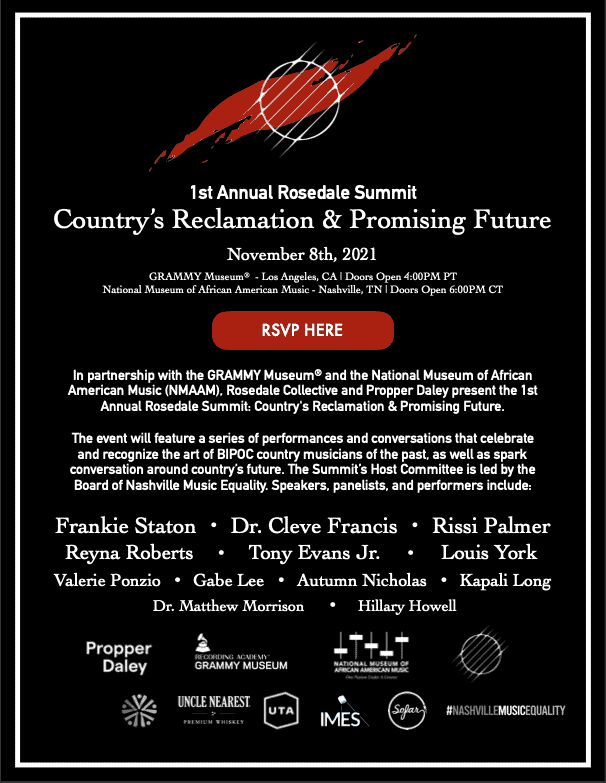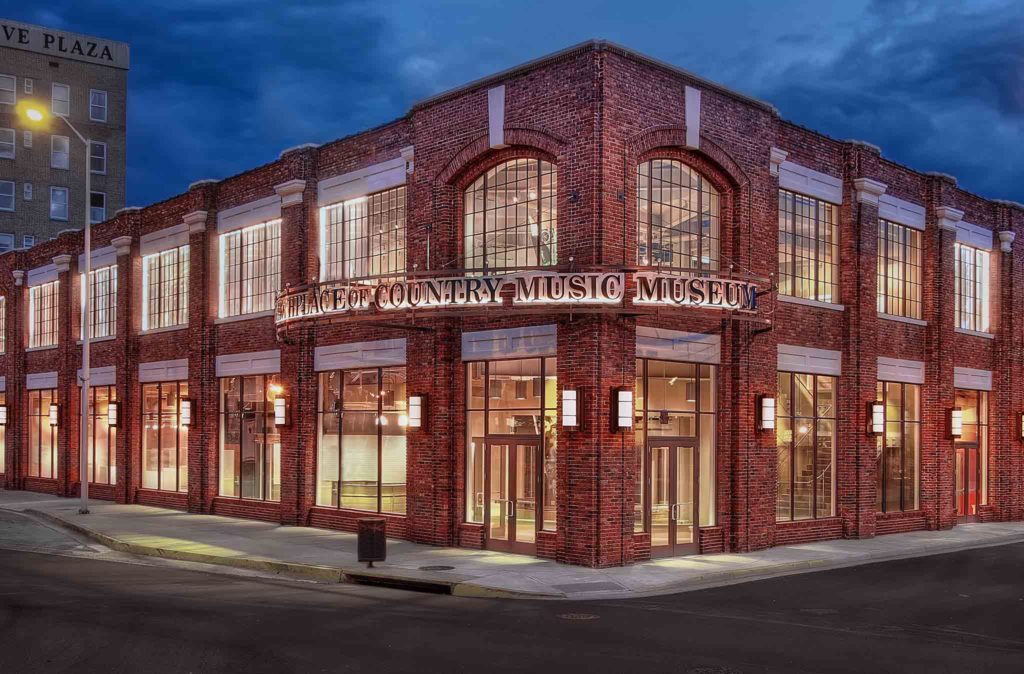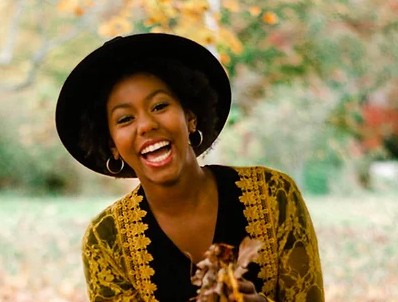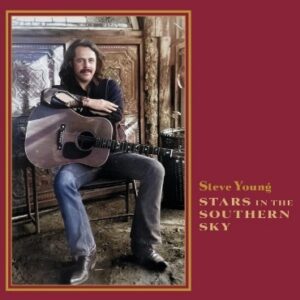James Akenson
Folks are always looking for The Next Big Thing in Country Music. Some folks are looking to SAVE Country Music. Despair and anxiety about the state of Country Music is not at all new. The despair over Bro Country with the likes of Luke Bryan and Florida Georgia Line, the lack of minorities in Country Music, the dominance of men on Country Music radio reflect serious issues.
Even despair about contemporary Country Music lyrics being difficult to understand behind the Phil Spector ‘Wall Of Sound’ pop-rock noise levels of the background instruments is serious.
Fans of Traditional Country Music want a “melody that they can whistle’ and lyrics featured ‘front-and-center.’ It’s not surprising that one on-line newsletter is literally titled Saving Country Music.
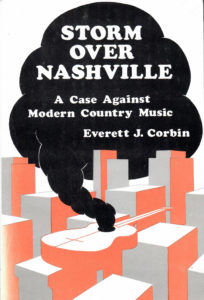 But…as mentioned…despair over the state of Country Music isn’t new. Take a look at the cover of Storm Over Nashville: A Case Against Modern Country Music. A guitar densely surrounded by urban style building belches black smoke polluting and dominating the atmosphere. Clearly, by 1980 author Everett Corbin saw perilous threats to Country Music.
But…as mentioned…despair over the state of Country Music isn’t new. Take a look at the cover of Storm Over Nashville: A Case Against Modern Country Music. A guitar densely surrounded by urban style building belches black smoke polluting and dominating the atmosphere. Clearly, by 1980 author Everett Corbin saw perilous threats to Country Music.
Indeed, Corbin states in the introduction that “Traditionalists-purists in Country Music are fighting to save our beloved music, and no amount of persuasion can make us change our minds, or forsake the battle.” We won’t go back any further of the creation of the smooth, more popish ‘Nashville Sound’ in 1957. Folks have worried about Country Music for a long time.
Looking for The Next Big Thing can be linked to two things. It can be who will rise to the top and become a major star. It can also be linked to a savior of Country Music to bring Country Music back to its traditional roots.
I’m all for discovering new talent. I also like the idea that a more traditional approach to background instrumentals, melodies, and lyrics can emerge from the excessively loud ‘Wall Of Sound’ so often used in Country Music today.
Of course, just like the “New Traditionalists” in the 1980s there will be touches that make the old traditional have a modern touch. Randy Travis didn’t sound exactly like Hank Williams.
My choice for The Next Big Thing isn’t Zach Bryan or Jelly Roll. In fact, I don’t believe in The Next Big Thing who might also SAVE Country Music. It’s a dicey business to make such predictions. I also think Country Music is Country Music no matter the time-period and doesn’t need to be SAVED.
I do see, though, artists who are intriguing, talented, and have appeal from a variety of perspectives. I personally look for signifiers that link the emerging Country Music artist to the past. I look for signifiers that link the emerging Country Music artist to current issues and the future.
If the past, present, and future can be linked, I’m ready to say here is an artist who we really need to watch and to enjoy. It’s dicey to pick the World Series Champion in baseball or the Super Bowl Champion in football before the season starts. My artist might not be The Next Big Thing. She does, though, represent lots of elements important to Country Music.
Who should I select as an artist to follow….even if she doesn’t become The Next Big Thing? And why should I be interested? Why should YOU, gentle reader, be interested? Well now, here is my mathematical pseudo formula to explain the question.
 What’s that you say? Let’s look at the translation. “African Americans Immensely Influence Country Music Impact PLUS Wonderful Women Woefully Wrongfully Excluded Excised Eliminated and Tomatofied from Country Music Radio TIMES African Americans Sadly Subtly Overtly Micro and Macro Aggressioned TIMES Timely Traditional Rural Rooted Signifiers Cloaked Carefully in Conservative Christian Concepts YIELDS Phoebe White.”
What’s that you say? Let’s look at the translation. “African Americans Immensely Influence Country Music Impact PLUS Wonderful Women Woefully Wrongfully Excluded Excised Eliminated and Tomatofied from Country Music Radio TIMES African Americans Sadly Subtly Overtly Micro and Macro Aggressioned TIMES Timely Traditional Rural Rooted Signifiers Cloaked Carefully in Conservative Christian Concepts YIELDS Phoebe White.”
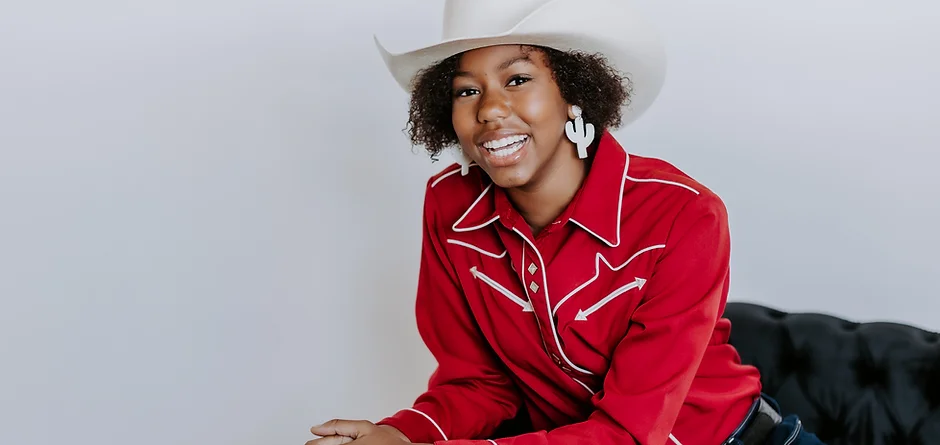
You got it. I think Phoebe White is a great talent who combines all sorts of important components rooted in the past of Country Music, present in struggles of today’s Country Music, and likely to be continuing into the future of Country Music.
Phoebe’s web page says more than it realizes. Let’s look at some quotes.
A 13 year old from the foothills of Appalachia, Phoebe is inspired by music pioneers who have gone before her such as Roy and Dale, Patsy Cline, Jimmie Rogers, and Patsy Montana. Sharing the music of America’s cowboy past is one of her passions.
Seems to me that right of the starting gate Phoebe stakes out some important Country Music territory. She knows about “The Father of Country Music” Jimmie Rodgers. Patsy Montana wanted to be a Cowboy’s Sweetheart. She wrote and recorded “I Want To Be a Cowboy’s Sweetheart” in the mid 1930s.
It became the first million record seller written and recorded by a woman. Roy and Dale rode the range on Buttermilk and Trigger for some very “Happy Trails.” They check lots of boxes for a link to the world of Cowboy imagery.
Let’s not forget Roy Rogers as a member of the “Sons of the Pioneers” as we stumble and tumble(weed) through life. Phoebe’s FaceBook page has a similar tone.
Despite her tragic death, Patsy Cline lives on in “I Fall To Pieces” and other classics. Of course, the Cowboy occupies a significant space in the values and mythology of the United States and Country Music.
Speaking of important territory, Phoebe is from the foothills of Appalachia. Does that not add another level of authenticity to her Country Music ‘street cred’ or what? In 1927, didn’t Jimmie Rodgers and the Carter Family record in Bristol, Tennessee as part of The Big Bang of Country Music?
That’s right in the heart of the Appalachian mountain chain with its ridges and valleys. Of course, someone will say that current Country Super Star Luke Combs is also from Kentucky.
Phoebe White’s web page also says she loves Jesus. That should further signify that Phoebe fits within the strong Sacred and Profane religious framework of Conservative Evangelical Protestantism associated with the strong southern roots of Country Music. No…not EVERY Country Music fan is Baptist or lives in the South, but it is a common pattern.
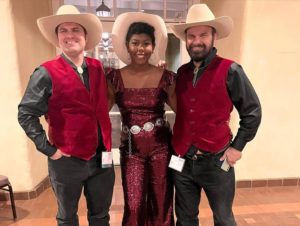 Let’s check out Phoebe as she sings Patsy Montana’s I Want To Be A Cowboy’s Sweetheart. Singing with the back-up of Riders In The Sky on Woodsongs. The yodel, the boots, the politeness of “Yes Sir” all place Phoebe as an authentic Country Music artists. It comes naturally.
Let’s check out Phoebe as she sings Patsy Montana’s I Want To Be A Cowboy’s Sweetheart. Singing with the back-up of Riders In The Sky on Woodsongs. The yodel, the boots, the politeness of “Yes Sir” all place Phoebe as an authentic Country Music artists. It comes naturally.
Lots of fans and critics would say she is AUTHENTIC. The “A Word,” AUTHENTICITY, is powerful, popular, and persistent. It’s used in lots of ways. But above all, it means the person or thing comes by it naturally. It isn’t fake. It isn’t a put-on. Phoebe, flat-out, comes across with an aura of authenticity.
Other items on Phoebe White’s web page tell of her new CD, her multi-instrumental talents, her recordings, and numerous honors, and appeareances. Let’s not, of course, forget the Phoebe White merchandise…’the merch’…that is essential to an artist’s income.
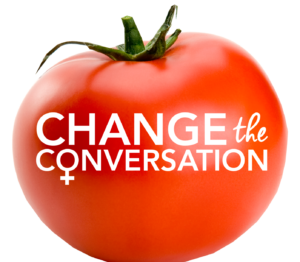 Of course, we must mention the issues of race and gender. Prior to the murder of George Floyd there had been a great deal of conversation about the role of women in Country Music…particularly Country Music radio. Change the Conversation sought to fight “gender inequality in the music industry by providing support, education, and community for female artists and executives.”
Of course, we must mention the issues of race and gender. Prior to the murder of George Floyd there had been a great deal of conversation about the role of women in Country Music…particularly Country Music radio. Change the Conversation sought to fight “gender inequality in the music industry by providing support, education, and community for female artists and executives.”
The famous TOMATOGATE comment in 2015 by a male radio consultant used gender loaded language in discussing Country Music radio. He likened the Country Music radio mix to a salad in which women…like tomatoes…should be sprinkled in as a garnish and never back to back.
The problem still exists. Phoebe White’s career will have to negotiate things outside her control such as being a woman in a male dominated industry.
Phoebe White will also have her career influenced by race. African Americans have had a great deal of influence on Country Music. There are lots of articles and books to document the African American influence.
It’s as basic as Jimmie Rodgers, The Father of Country Music using a Blues structure in his signature Blue Yodel # 1 T For Texas. Rodgers also recorded with Louis Armstrong and Lillian Hardin. The sad fact is that few African Americans have become Country Music stars.
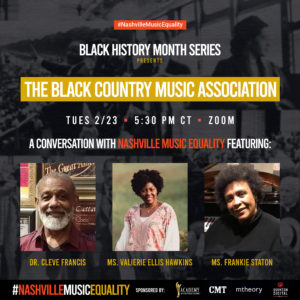 After the murder of George Floyd a great deal of conversations focused on the manner in which race influenced African American Country Music artists as well as access to positions throughout the Country Music industry. Nashville Music Equality brought together numerous webinars and events dealing with issues related to African Americans in Country Music.
After the murder of George Floyd a great deal of conversations focused on the manner in which race influenced African American Country Music artists as well as access to positions throughout the Country Music industry. Nashville Music Equality brought together numerous webinars and events dealing with issues related to African Americans in Country Music.
Want something really simple? How about African Americans with appropriate credentials being stopped back stage and asked about their reason for being present. Holly G formed The Black Opry to give visibility to African American Country Music artists.
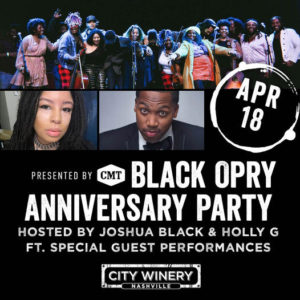 Despite such conversations, projects, and related corporate pledges, no doubt that talented African Americans will continue to find it difficult to be as successful as they would like. Keep checking the charts.
Despite such conversations, projects, and related corporate pledges, no doubt that talented African Americans will continue to find it difficult to be as successful as they would like. Keep checking the charts.
I had hoped to interview Phoebe, but her recording schedule and an illness made a ZOOM meeting impossible. What would I have asked? I would ask her how she will know if she has been successful. Is it making it BIG with a recording contract and being a star on Country Music radio? Will it be filling up big arenas or football stadiums?
I would also like to do the “Speed Dating” technique with her. A series of two choices are provided and one has to be picked immediately. I would ask word pairs such as Patsy Montana or Patsy Cline, Mickey Guyton or Chapel Hart, Merle Haggard or Luke Combs, Charlie Pride or Kane Brown, Carrie Underwood or Lindsey Wilson, Nashville’s Bridgestone Arena or The Station Inn, Nashville or Austin, Banjo or Electric Bass, and Drums or Guitar. People reveal their attitudes when quick decisions about such word pairs are required.
So…will Phoebe White have a great career? Define “Great Career” you say. You never know in the super competitive world of Country Music. I hope Phoebe White has a successful career based on her vision of success.
If she ever becomes a major national star I’ll be happy. I want Phoebe White to succeed despite the additional hurdles posed by race and gender. Those barriers shouldn’t exist. Maybe Phoebe White can help dismantle them.
All-in-all, I’m anxious to watch Phoebe White in the coming years and see her growth as a person and as an artist.
